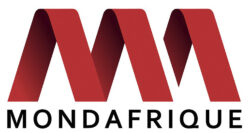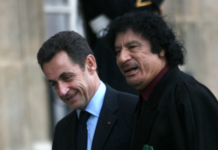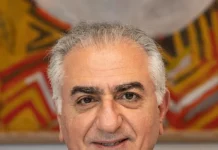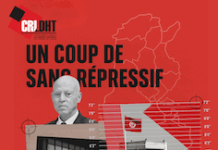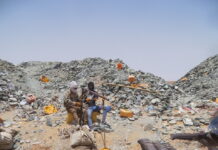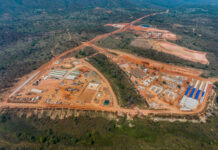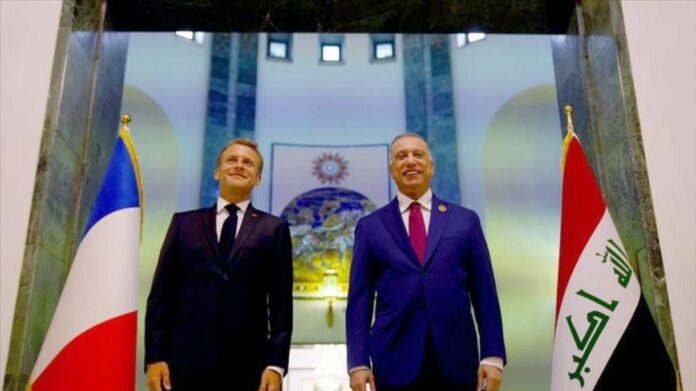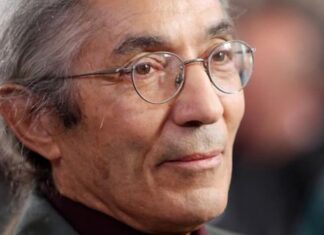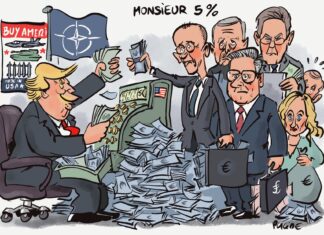Les ambitions d’Emmanuel Macron dans ses relations avec l’Irak et k’Iran restent dérisoires si on les compare aux avancées de la Chine dans la région
Une chronique de Xavier Houzel
J’ignorais jusqu’à il y a quelques heures qui était monsieur Rajeh E-Khoury, l’auteur d’un article du journal panarabe Alsharq Al-Aawsat publié à Londres sous le titre « Lebanon for Oil, Monsieur Macron?[i] ». C’est un columnist connu, à qui il arrive de signer aussi une colonne dans le très sérieux quotidien libanais An-Nahar. Je trouvais le titre de son papier accrocheur et je m’étais préparé à lire son texte avec empressement. Un élan hélas vite brisé : je me suis senti horriblement coupable, gêné pour Mondafrique qui avait été le premier avec BFM Business à écrire[ii] (les 5 et 8 septembre derniers) que TotalEnergies aurait conclu avec l’Irak un contrat de dans le domaine de l’Énergie portant sur 27 milliards de Dollars. D’abord parce que, littéralement, c’est inexact, et ensuite parce que cela n’a rien à voir avec le Liban – même si le Liban est bien le centre du monde, comme le conçoit monsieur Khoury.
L’apport de Total aux projets dont il s’agit n’est pas de 27 milliards de Dollars mais seulement de 10 milliards (dix « à tout casser »). Les dix-sept autres milliards, pour faire bonne mesure, correspondent à une projection d’économiste, autrement dit à l’estimation d’un surcroît d’investissements induits par lesdits projets et attendus (espérés) de la part de la communauté internationale, c’est-à-dire de la part « d’autres acteurs », anonymes par construction, qui seront les bienvenus sur une période de 25 ans.
Ce contrat produit un effet de manche, certes, même si l’on regrette qu’il ne soit pas comparable à l’effet d’annonce du pacte de coopération stratégique signé par l’Iran – également pour 25 ans – avec la Chine au mois de mars dernier, qui porte, lui, sur 400 milliards de Dollars. En échange, dans le cadre de ce protocole, la Chine bénéficiera d’un accès privilégié aux ressources énergétiques de l’Iran, en premier lieu à son pétrole et à un prix préférentiel. Ce Pétrole ira dans l’escarcelle de la Chine. Les deux démarches n’ont rien de commun.
La mission de TotalEnergies consistera, sous quatre rubriques différentes, d’abord à traiter et à transporter de l’eau salée pour l’injecter dans le sol (pas pour le bonheur des agriculteurs mais dans le puits des autres, y compris ceux des Chinois), ensuite à capter du Gaz dit « fatal » ou de « torchage » (toujours à la tête des puits des autres pour en faire de l’électricité plutôt que de le voir être brûlé ou s’envoler dans la stratosphère), puis à installer, des panneaux solaires et enfin et seulement à développer le gisement de gaz naturel de Ratawi. Cette Électricité et ce Gaz iront – notamment – au Liban, pas au Hezbollah pour qu’il en fasse des confettis – fut-ce, même, en Farsi.
Les Chinois remplacent à tour de bras les majors occidentaux qui quittent l’Irak les uns après les autres. La France n’a pas voulu y figurer en 2003 et c’est pour cela qu’elle y est encore, ce qui n’a aucun rapport ni avec le Liban ni avec l’Iran. Et où est le Pétrole ? Monsieur Khoury. Le pétrole, c’est le Soleil. Ôtez-vous de son ombre. Un peu comme la France, Total joue dans la région le rôle de la « voiture balai » – le sol y est jonché de débris. Il faut nettoyer tout cela. Réconcilier. Reprendre ses esprits, rebâtir. Vous avez en revanche raison sur un point : la France du président Macron, n’est pas tout à fait la kind mother comme vous la voudriez, parce que le devoir qui lui revient devant un enfant gâté insupportable comme le Liban en ce moment c’est la patience, et Dieu sait qu’elle en a. Mais c’est aussi la fermeté.
Ce qui est bizarre, c’est que nous ne paraissiez pas vous réjouir que votre pays ait aujourd’hui un gouvernement, que vous preniez la liste de ses nouveaux ministres pour des incompétents et que vous voudriez que Paris se brouillât avec Téhéran pour empêcher sans doute le retour de l’Iran dans les Accords de Vienne. Ainsi, vous qualifiez toute coopération franco-iranienne et bien sûr tout dialogue de la France avec le parti Hezbollah Libanais de profonde insulte à l’égard de votre président le général Michel Aoun, du Premier-ministre désigné et de la Communauté sunnite dans son ensemble, mais vous oubliez le président de votre parlement et nombre d’autres sommités politiques et religieuses libanaises ! Comment voudriez-vous que l’on se dise que vous n’êtes pas sectaire et que vous êtes crédible.
Vous parlez enfin du président de la République Islamique d’Iran Ebrahim Raisi comme d’un capo et vous oubliez ses deux vice-présidents Moammad Mokhbér et Mohsen Rezaï, qui connaissent bien la France et que la France honore de sa haute considération. Il faudrait que vos amis français – vous devez pourtant en avoir – vous prennent par la main et vous expliquent que le monde a changé et comment il fonctionne.
XH
[i] https://english.aawsat.com/home/article/3183386/rajeh-khoury/lebanon-oil-monsieur-macron
[ii] https://www.bfmtv.com/economie/entreprises/industries/irak-total-energies-signe-un-contrat-d-investissements-de-27-mds-de-dollars-dans-le-petrole-le-gaz-et-le-solaire_AD-202109050140.html
https://mondafrique.com/le-petrole-et-la-religion-pieces-maitresses-du-moyen-orient/Lebanon for Oil, Monsieur Macron?
Saturday, 11 September, 2021 – 11:00
Throughout six rounds of nuclear talks in Vienna between the United States and Iran, the French seemed the most eager to reach an agreement that would restore matters to their ordinary course. This would allow French companies and interests to benefit again from Iranian contracts, which they had lost after Donald Trump canceled the agreement in 2018 under pain of sanctions that France cannot afford because it would lose the American market, which is the largest in the world.
That was understandable, perhaps. However, Emmanuel Macron’s France now appears mired in what seems like opportunism in the eyes of many Lebanese who, long ago, used to regard France as their “kind mother.” Macron’s first visit to Lebanon on August 6 of last year, in the aftermath of the Beirut port explosion, constituted an initiative to re-normalize the political class after an uprising and popular outrage. It was perhaps more than that; it extended a hand to Hezbollah.
Then, on his second visit in early September, which took Macron directly from Beirut to Baghdad, many believed it meant that France, which hopes to preserve Lebanon as a Francophone gateway to the region, would not hesitate to sell the country wholesale to Iran, as Iraq is the second stop for Iran and for its interests.
Thus, on the 5th of September this year, it seemed quite astonishing that Iranian President Ebrahim Raisi stated in a phone call with Macron that “the Lebanese people are suffering from economic sanctions, and France can play a role in lifting these sanctions.”
This asserts that efforts are being made by Iran, France, and Hezbollah to form a strong Lebanese government that could serve the interests of Lebanon. “We will not hesitate to provide all forms of humanitarian aid to the Lebanese and are ready to cooperate with France on developing Lebanon,” the statement proceeded to claim.
Were Raisi’s words uttered haphazardly, without a context of the discussions that had taken place prior between him and Macron, who reportedly wants to sell his Lebanese capital twice:
The first time was when, the next day, a high-ranking French source said that Iran was not obstructing the formation of the government in Lebanon (which was formed Friday).
Macron had raised the issue of government formation at the Baghdad Conference for Cooperation and Partnership, saying that he saw Tehran as not obstructing the government formation and that there are no Iranian demands regarding the government. Instead, the French viewed the head of the Free Patriotic Movement, Gebran Bassil, as wanting everything for himself, while Paris is asking Hezbollah to pressure its Aounist allies, but Hezbollah does not want a dispute with them!
France provided a strange defense of Tehran’s good behavior despite all that was said about Tehran obstructing the formation of a government in Lebanon as a regional pressure card that it can use at the negotiating table in Vienna. Secondly, it was a defense of Hezbollah’s good behavior, which does not pressure the Aounists in order to preserve the cover of Christian allies, in exchange for the Aounists keeping Hezbollah, an extremely powerful armed force, as a cover as well. However, is it difficult for Macron or his ambassador in Beirut to discover the erroneousness of their statements? Absolutely not, but it is the plans that pave the way for access to oil and gas contracts in Iraq and then in Iran in the future!
How is this the case?
Macron was the only Western president who attended the conference of regional countries in Baghdad. Could Iraqi Prime Minister Mustafa al-Kadhimi, for example, have made this exception if Tehran had opposed it, or if the lines of friendship had not been established between Paris and Tehran? Most importantly of all, or perhaps what encapsulates this argument, is that on the second day after a major statement by the Lebanese government, that is, on the 6th of September, the French company Total announced that it signed a substantial 25-year energy agreement with the Iraqi government.
The agreement stipulates the building of four giant energy projects in the south of the country, that is, on the border with Iran, at the cost of 27 billion dollars. It should be clarified that these projects are meant to support the electricity sector, and it is known that Iran is exerting stifling pressures on the Iraqi government by cutting off its electricity supplies from the southern region under the pretext of Baghdad’s delay in paying its dues!
Since his first visit to Beirut on August 6, 2020 after the port explosion, when he demonstrated his keenness to re-normalize the political class that destroyed Lebanon, as well as his adherence to the invitation of the Hezbollah delegation to the meeting he held in the Residence des Pins, in which he launched his initiative, the French president has seemed keen on extending an arm to Iran. Of course, one could note Paris’ enthusiasm to push for an agreement in Vienna, regardless of the US desire to expand the framework of the new agreement such that it includes the issue of ballistic missiles and Iran’s destabilizing regional role from Sanaa to Gaza, passing through Baghdad, Damascus and Beirut.
Raisi’s statement about the formation of a Lebanese government with French-Iranian cooperation, and with Hezbollah, of course, constitutes a profound insult to the components of the Lebanese state and its head, Michel Aoun, the prime minister-designate, and the Sunni community.
It is no longer concealed that France views Lebanon as a mere passageway for its interests, not as a state with sovereignty. Raisi’s statements coincided with the story of Hezbollah’s import of gasoline and diesel from Iran to Lebanon, which prompted the Americans to confront it by importing Egyptian gas through Jordan and Syria despite the Caesar Act.
However, these maneuvers will not satiate Iran’s growing desire to incorporate Lebanon into its ‘axis of resistance.’ For this reason, for example, Iranian Foreign Minister Hossein Amir-Abdollahian solicited a government request to send fuel to Lebanon, while the Iranian ambassador in Beirut suggested that Tehran solve the problem of electricity and infrastructure, open the path for medicine exports to the country, and is prepared to help the Lebanese army!
Is it conceivable that Macron now views France as a mere partner of Iran in Lebanon?
Forget about the “kind mother.” This is strictly a matter of oil and investments. After the nuclear agreement was signed with Barack Obama, French companies were the first to arrive in Tehran, as Total had been involved in Iranian oil since the days of the Shah. Meanwhile, Airbus sold Tehran 18 billion euros worth of products, in addition to projects by car company Renault, while Total has obtained Iranian gas contracts worth $5 billion.
All of this economic involvement is clear and understandable, but for France to become a partner of Iran and Hezbollah in the formation of Lebanese governments, that is attributed to a bankrupt and blind political class that has turned Lebanon, its democracy, freedom and sovereignty, into a country merely traded for oil in Iraq and, by extension, in Iran.
